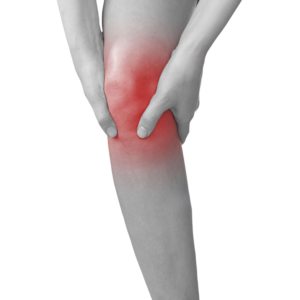Description
- Amyotrophic Lateral Sclerosis (ALS): A fatal disease that causes progressive muscle weakness, tremors, and paralysis, starting in the hands and spreading to major muscle groups. It may affect respiratory function, leading to breathing difficulties.
- Bell’s Palsy: A temporary facial muscle paralysis due to nerve damage, causing difficulty in closing the eyes, excessive tearing, and drooping of facial muscles.
- Food Poisoning: Certain bacteria and toxins can cause muscle weakness and paralysis, typically appearing 2-4 days after consuming contaminated food. Symptoms include nausea, vomiting, and breathing difficulties.
- Brain Abscess: Abscesses in the brain can cause muscle weakness or hemiparesis, along with symptoms like headaches, vision problems, and impaired consciousness.
- Brain Tumor: Tumors in the motor areas of the brain can lead to progressive hemiparesis and other symptoms such as headaches, seizures, and increased pressure in the brain.
- Conversion Disorder: This psychological condition causes sudden paralysis without physical cause, often affecting multiple muscle groups and accompanied by dramatic or emotional behavior.
- Encephalitis: Inflammation of the brain, causing fever, headaches, and, in severe cases, paralysis. Early signs include fever, seizures, and confusion.
- Guillain-Barré Syndrome: A rapidly progressing condition that causes symmetrical paralysis starting in the lower limbs and can lead to respiratory failure.
- Head Trauma: Brain injuries can lead to paralysis and other symptoms such as headache, vision problems, and loss of sensation, depending on the severity and location of the injury.
- Migraine: Some migraines can cause temporary muscle weakness, along with headaches, dizziness, and sensitivity to light.
- Multiple Sclerosis: A progressive disease where muscle weakness turns into paralysis, often beginning with vision or sensory problems and advancing to gait issues, tremors, and muscle stiffness.
- Myasthenia Gravis: Characterized by muscle weakness that can lead to paralysis over time, affecting facial muscles, breathing, and swallowing.
- Neurosyphilis: A late-stage syphilis infection affecting the nervous system, leading to muscle paralysis, dementia, and reflex abnormalities.
- Parkinson’s Disease: A degenerative condition causing tremors, stiffness, and slow movements, potentially leading to paralysis if untreated.
- Peripheral Nerve Damage: Damage to peripheral nerves can lead to localized muscle paralysis, sensory loss, and reflex problems.
- Peripheral Neuropathy: Nerve damage that causes muscle weakness, flaccid paralysis, and sensory disturbances.
- Poliomyelitis: A viral infection causing delayed or permanent paralysis, often affecting the limbs.
- Spinal Cord Injury: Complete or partial spinal cord injuries result in paralysis below the site of injury, affecting movement and sensation.
- Spinal Cord Tumor: Tumors in the spinal cord cause progressive muscle weakness and paralysis, often accompanied by pain and sensory loss.
- Stroke: Damage to the brain from lack of blood flow can lead to contralateral hemiparesis, along with speech difficulties, vision problems, and impaired consciousness.
- Subarachnoid Hemorrhage: A sudden bleed in the brain that can cause paralysis, severe headaches, vomiting, and light sensitivity.
- Spinal Cord Cavernous Disease: A degenerative condition that affects spinal cord function, causing paralysis and loss of sensation.
- Thoracic Aortic Aneurysm: Rupture of this artery can lead to sudden bilateral paralysis, severe chest pain, and symptoms of shock.

:::::::::::::::::::::::::::::::::::::::::::::::::::::::::::::::::::::::::::
Important:
Please do not place an order lightly;
Please contact us before placing an order, inform us of your detailed condition, as well as a copy of the information of the hospital diagnosis to us, and we will notify you after we submit your medical history information to the expert group to confirm the plan.








* * * Snag Your Free Gift: http://shubhknk.com/?0bgtc1 * * * hs=0022a15e5b3a74148b282c5fd6285231* –
w3gjd7
🧴 Sex Dating. Register >> yandex.com/poll/43o224okZdReGRb1Q8PXXJ?hs=0022a15e5b3a74148b282c5fd6285231& Incident # QWNO4483672 🧴 –
df3bih